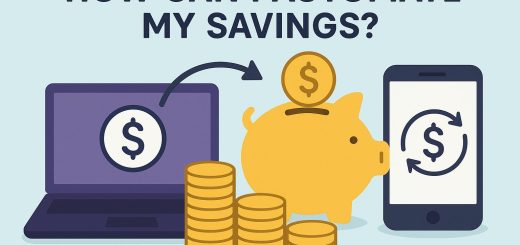What is an emergency fund and how much should I have?
Understanding an Emergency Fund
An emergency fund is essentially a financial safeguard, a pool of money set aside strictly to cover unexpected expenses or emergencies. This financial cushion is pivotal for individuals looking to manage unforeseen situations without the imminent pressure of relying on credit or loans. Emergencies are often unpredictable and can range from pressing medical bills, imperative car repairs to abrupt job loss.
Importance of an Emergency Fund
The significance of maintaining an emergency fund cannot be understated. At its core, it provides a sense of financial security by ensuring that unexpected costs don’t derail your financial stability. This security means being prepared for life’s unforeseeable events, which effectively translates to less stress and enhanced peace of mind. Furthermore, an emergency fund averts the need to accumulate debt, eliminating dependence on credit cards or loans which often have high-interest rates.
How Much Should You Save?
Determining the size of your emergency fund is contingent upon various factors tailored to your personal financial situation. Generally, financial advisors advocate for an emergency fund capable of covering three to six months of essential living expenses. These expenses usually encompass:
- Rent or Mortgage Payments: Ensuring you have a roof over your head is non-negotiable.
- Utilities: Covering water, electricity, and heating costs is essential for daily living.
- Groceries: Allocating funds for basic nourishment and dietary needs.
- Insurance Premiums: Continuous coverage for health, auto, and home insurance.
- Transportation Costs: Encompassing car maintenance, fuel, or public transportation fees.
Factors Affecting the Size of Your Emergency Fund
Several elements can impact the amount you designate for your emergency fund:
1. Income Stability: Individuals with stable employment might find that saving enough for three months of expenses is satisfactory. In contrast, for those with fluctuating incomes, such as freelancers or commission-based roles, a larger cushion might be prudent.
2. Family Size: Those with larger families usually incur higher expenses, thereby necessitating a more considerable financial reserve to safeguard against potential emergencies.
3. Healthcare Needs: If you or your dependents have ongoing medical needs, it’s vital to include potential healthcare expenses when calculating your target savings amount.
Building Your Emergency Fund
Commencing the journey to erect a substantial emergency fund starts with a practical and achievable objective. Initiate your savings target modestly, such as aiming to accumulate $1,000. Over time, this goal should not be static; instead, aim to increment it progressively as your financial situation ameliorates.
To streamline the accumulation process, one effective method is automatically transferring a designated percentage of your income into a separate savings account explicitly allocated for emergency funds. This practice instills a habit and minimizes the temptation to utilize these funds for non-essential spending.
Regular reassessment of your financial status and your emergency fund size is prudent, especially after experiencing significant life changes such as marriage, the birth of a child, or a career shift. Such periodic evaluations facilitate adjustments to your savings, ensuring your emergency fund remains adequate.
For additional insights and expert advice on structuring and enhancing your emergency fund strategy, consider visiting financial planning resources or websites. Professional guidance can offer nuanced perspectives tailored to unique financial scenarios, empowering you to optimize your emergency fund efforts proficiently.
In conclusion, establishing an emergency fund is a fundamental aspect of astute financial planning. By thoughtfully determining the appropriate amount for your specific circumstances, you are better positioned to handle life’s unexpected events with confidence and poise. An emergency fund not only lends security but also underpins a foundation for sustaining financial health and wellness over the long term.
This article was last updated on: August 13, 2025






